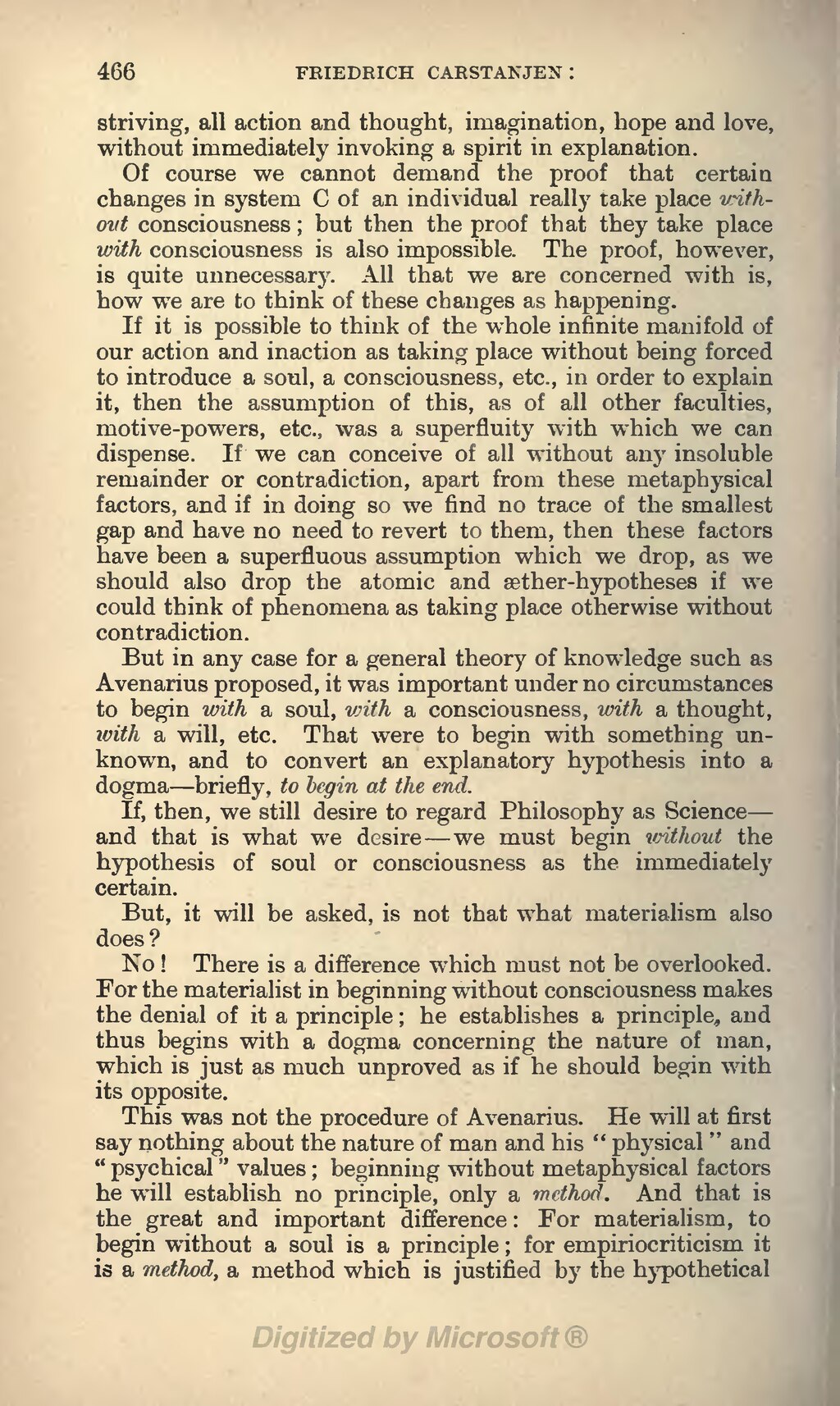striving, all action and thought, imagination, hope and love, without immediately invoking a spirit in explanation.
Of course we cannot demand the proof that certain changes in system C of an individual really take place without consciousness; but then the proof that they take place with consciousness is also impossible. The proof, however, is quite unnecessary. All that we are concerned with is, how we are to think of these changes as happening.
If it is possible to think of the whole infinite manifold of our action and inaction as taking place without being forced to introduce a soul, a consciousness, etc., in order to explain it, then the assumption of this, as of all other faculties, motive-powers, etc., was a superfluity with which we can dispense. If we can conceive of all without any insoluble remainder or contradiction, apart from these metaphysical factors, and if in doing so we find no trace of the smallest gap and have no need to revert to them, then these factors have been a superfluous assumption which we drop, as we should also drop the atomic and aether-hypotheses if we could think of phenomena as taking place otherwise without contradiction.
But in any case for a general theory of knowledge such as Avenarius proposed, it was important under no circumstances to begin with a soul, with a consciousness, with a thought, with a will, etc. That were to begin with something unknown, and to convert an explanatory hypothesis into a dogma—briefly, to begin at the end.
If, then, we still desire to regard Philosophy as Science—and that is what we desire—we must begin without the hypothesis of soul or consciousness as the immediately certain.
But, it will be asked, is not that what materialism also does?
No! There is a difference which must not be overlooked. For the materialist in beginning without consciousness makes the denial of it a principle; he establishes a principle, and thus begins with a dogma concerning the nature of man, which is just as much unproved as if he should begin with its opposite.
This was not the procedure of Avenarius. He will at first say nothing about the nature of man and his “physical” and “psychical” values; beginning without metaphysical factors he will establish no principle, only a method. And that is the great and important difference: For materialism, to begin without a soul is a principle; for empiriocriticism it is a method, a method which is justified by the hypothetical
